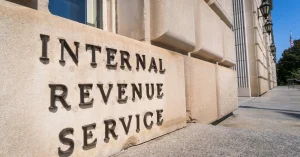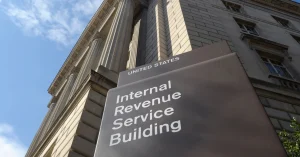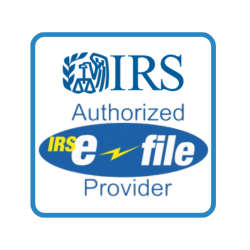Table of Contents
ToggleCongress passed the Coronavirus Aid, Relief, and Economic Security Act (CARES Act) to help small businesses survive pandemic-related setbacks. Unfortunately, if you’re like some small business owners, you’re reluctant to apply. The application, submission, and compliance guidelines are new and often complex. When added to your existing tax requirements, they increase your responsibilities and include a high potential for error. Business owners need assistance, but they have a legitimate fear of making an unintentional violation. They want to avoid any action that might generate IRS fines and penalties for their small business.
If you run a small business, the COVID-19 pandemic has presented unparalleled operational challenges. Like most small businesses, you reluctantly closed your doors due to state-wide directives. You furloughed your employees and lost your customers. Even if state guidelines deemed your business “essential”, you’ve likely struggled with employee retention, added operating costs, and reduced income. CARES Act benefits can provide a critical influx of cash to keep your business financially viable. If you need CARES Act support to survive, you need a tax professional to help you through the process.
Cares Act Small Business Benefits
The CARES Act gives the Small Business Administration the authority to provide financial assistance. The SBA oversees several programs that provide support to businesses that qualify. Each program is subject to qualifications, application compliance, and deadlines.
When you apply for an SBA-supervised loan or grant, you must navigate a minefield of informational documents, guidelines, and applications. Treasury.Gov provides links to 14 relevant documents for borrowers, 9 documents for lenders, and 24 individual links to program rules. Even if you meet the appropriate requirements to obtain the benefits you need, you must remember that your data submissions are subject to IRS scrutiny during next year’s tax season.
Benefits Available Through the SBA
- Paycheck Protection Program: The PPP is providing up to $349 billion in capital to help small businesses retain their employees.
- Emergency Economic Injury Grant ; Economic Injury Disaster Loans: EEIG and EIDL provide financial assistance that gives businesses a “…quick infusion of a smaller amount of cash…”
- Small Business Debt Relief Program: The Small Business Administration provides Non-Disaster loans and Micro Loans. The SBA will cover the first six months’ payments, including principal, interest, and fees.
- Counseling and Assistance: The SBA will provide counseling under its Local Assistance Program.
Small Business Tax Benefits
The CARES ACT also created small business tax breaks. These are available to business owners during the next tax filing season.
- Employee Retention Credit: This tax credit allows employers to take a 50% credit ($10,000 maximum per employee) for salaries paid to retain employees. Employers who receive Paycheck Protect Program funds do not qualify for this credit.
- Revised Employer Payroll Tax Payment Deadlines: Employers may delay paying their portion of employee payroll and FICA taxes.
- Family/sick Leave Tax Credits: Under the Families First Coronavirus Response Act, employers with less than 500 employees must pay employees up to 80 hours of sick and/or extended childcare leave. Employers qualify for FFCRA tax credits when they pay these benefits between April 1, 2020, and December 31, 2020
Employee Retirement Account Deductions
Your employees may qualify for a tax-favorable distribution, rollover, or loan from a qualified, retirement fund. While these benefits usually go directly from the plan to the employee, as an employer you or your designated plan administrator usually initiate the process. You are ultimately responsible for reviewing eligibility before submitting a distribution or loan request.
The CARES Act waives minimum plan deduction amounts, modifies terms for existing plan loans, and modifies tax penalties. Employees who choose this option will not have to pay traditional penalties under defined circumstances:
- They make a withdrawal during 2020
- An employee, spouse, or dependent receives a COVID-19 diagnosis based on a CDC-approved test, or
- The employee suffers a financial setback due to quarantine, a job furlough, limited work hours, or lack of childcare
As distributions are often considered taxable income, you must also report them to the IRS. As an employer, you may rely on your employee’s self-certification that they qualify for a plan distribution, but the employee must still meet IRS eligibility requirements when you calculate their taxable income. If you rely on a Professional Employment Organization to manage traditional employer tasks, your arrangement doesn’t relieve you of tax or CARES Act compliance responsibilities.
Potential CARES Act Small Business Penalties
The IRS can assess CARES Act compliance penalties based on existing guidelines. Because the Act creates a number of new application processes, rules, and guidelines, compliance efforts can feel like you’re walking a tightrope.
Failure to comply with submission requirements or time-constraints can shut you out of the process. If you rush your applications, you might make a regrettable mistake. If you pay your business taxes based on inaccurate information or inappropriate tax credits, you may generate an unintentional error. The mistakes you make while trying to access CARES Act benefits can subject you and your company to traditional IRS penalties, fines, and scrutiny.
- Filing penalties for not filing your tax return when due
- Penalties and interest for failure to pay the appropriate taxes when due (extensions don’t extend the due date)
- Penalties for failing to pay adequate estimated quarterly taxes to cover your tax liability.
- Check return penalty if your bank doesn’t honor your tax payment check
- Information Return Penalties for failing to file your employees’ W-2, 1098, 1099, or W-2G forms by the deadline or failing to include the correct information.
Avoiding CARES Act Penalties
Congress didn’t pass the CARES Act to create a gotcha’ situation for small businesses. They intended the plan to assist small businesses by providing financial support. To avoid problems, you must understand the programs for which your company qualifies. You must obtain the appropriate applications and complete them carefully. Even if the SBA or IRS doesn’t require that you submit your documentation, you must retain your proof if you want to avoid future penalties.
Contact Silver Tax Group
If you need to apply for CARES Act assistance, let our tax professionals help you avoid future tax issues. We have offices in Michigan and Florida, and we work with clients throughout the country. Give us a call at 85-900-1040 or complete our contact form to get started.















